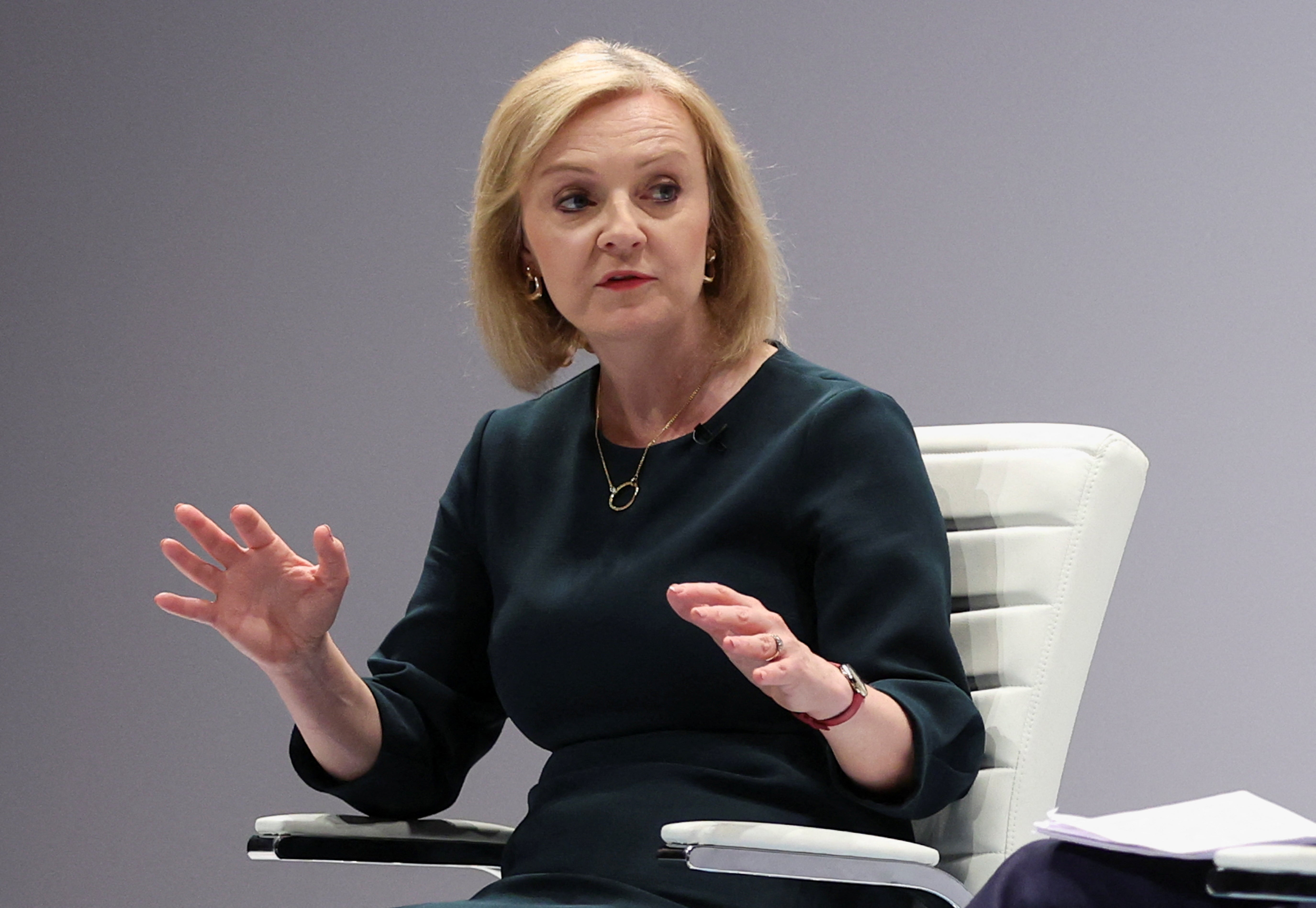Liz Truss will turn back to ‘Treasury orthodoxy’ when she is mugged by economic reality
The scale of the energy price crisis threatens to overwhelm the new government, rendering leadership campaign slogans irrelevant, writes John Rentoul


The problems facing Kwasi Kwarteng when he becomes chancellor of the Exchequer on 6 September will be the same as those that would have faced Oliver Dowden if he had become Rishi Sunak’s chancellor.
Kwarteng certainly seems to be confident that he will be taking over the Treasury, having written an article for the Mail on Sunday in which he said: “I want to reassure the British people that help is coming.” Those words must have been approved by the incoming prime minister, whose leadership campaign he is running.
That help is going to take roughly the same form, whoever is running the show when Boris Johnson departs. Whatever Liz Truss has said during the campaign about shrinking the state and unleashing free markets will be cast to the winds as the British state gears up for its third massive intervention in the economy since the financial crash of 2008.
The scale of the energy price crisis threatens to overwhelm the new government, and is so great that rhetoric about “Treasury orthodoxy” is frankly irrelevant. There is no prospect of anything resembling the “business as usual” that Truss claims to be against surviving the coming storm.
The disagreement that matters about the new government’s policy is not the dispute between Truss and Sunak about tax cuts. When Truss becomes prime minister, “the overwhelming might of the British state”, in Sunak’s words during the lockdown recession, is going to be placed, again, at the service of the people. Whatever Sunak did during the pandemic, she and Kwarteng are going to have to do something on a similar scale during the new crisis.
The important split could lie in the difference of emphasis between Truss’s two leading supporters, Kwarteng, who is currently business secretary, and Simon Clarke, who is still the chief secretary to the Treasury. Kwarteng is believed to be leaning towards the idea of a “deficit fund” that would allow the energy suppliers to freeze prices for two years. That would, like Keir Starmer’s plan, benefit all consumers, rich and poor.
Clarke, on the other hand, is against the idea of the taxpayer giving handouts to people who don’t need them, and wants to see government help targeted on the poor. He has criticised the universal element of Sunak’s measures, the flat £400 taken directly off all bills this winter, which is in addition to the targeted help delivered through the benefits system to vulnerable people.
Truss’s first big decision will be the extent to which the state will help people who can – although they may not like it – help themselves. It will be to decide the balance between targeted and universal help with energy bills. If Kwarteng goes for the deficit fund, that is a form of universalism. It would be a clever way of copying Labour’s policy while insisting that it is completely different. The effect of it would be the same: to fix prices at current levels. But instead of paying for it out of an increased windfall tax and higher government borrowing, the deficit fund would be repaid over decades by the energy companies charging higher prices.
It amounts to roughly the same thing, given that there is no such thing as free money (that may be one of those tiresome “Treasury orthodoxies” that Truss rails against, but which she will have to accept once she has to take responsibility for the nation’s finances). If the government wants to fix energy prices, we will all have to pay for it later, either as energy consumers or as taxpayers financing the national debt.
To keep up to speed with all the latest opinions and comment, sign up to our free weekly Voices Dispatches newsletter by clicking here
I doubt if she and Kwarteng will go for the full price freeze because it is so expensive. I suspect that they will be driven by necessity towards the targeting advocated by Clarke, probably ending up somewhere in the middle, with a mix of universal and targeted measures, just as Sunak did when he had to make the comparable decision in May.
Truss is about to relearn the conservative maxim that there are no solutions, only trade-offs. Her foolish assault on the Treasury, the only department in Whitehall with the intellectual firepower to handle a global economic crisis, will be abandoned. Her rubbishing of “Treasury orthodoxy” will be forgotten before she ever had to define what it meant.
Did she mean the traditional Treasury view that public borrowing should be sustainable? Or did she mean the broader view of the Treasury since Gordon Brown that protecting the poor is part of the economic interest of the country as a whole?
We will probably never find out. She will discover that she needs the Treasury and that she cannot wish away reality just by refusing to ask the Office for Budget Responsibility to forecast it. Platitudes about “a low-tax economy” that puts “personal freedom and responsibility at the heart of everything we do” will no longer suffice. On 6 September, she will have to start to make decisions about the distribution of the coming hardship.






Join our commenting forum
Join thought-provoking conversations, follow other Independent readers and see their replies
Comments